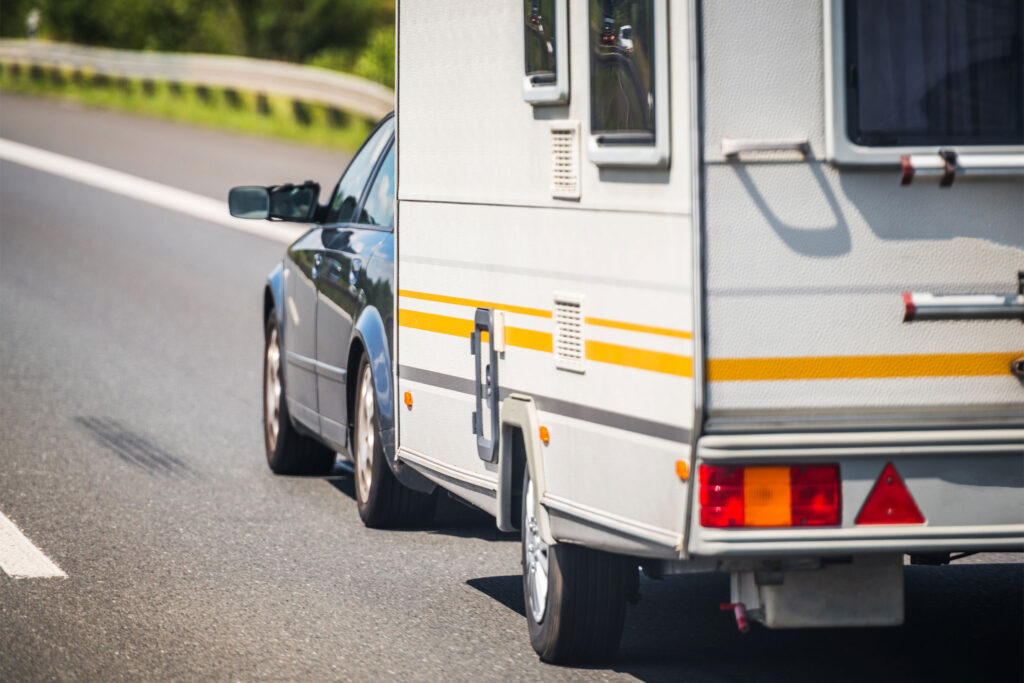
Choosing the Ideal Tow Vehicle for Your Horse Trailer: Transporting horses safely and readily is a top precedence for any equestrian enthusiast. Whether you’re heading to a display, trail ride, or a new stable, having the proper tow automobile for your horse trailer is critical. Selecting the ideal tow truck is a multifaceted choice that involves thinking about the weight and size of your trailer, the quantity of horses your delivery, and your budget. In this comprehensive guide, we will delve into the essential factors to keep in mind while deciding on the correct tow truck to your horse trailer, ensuring a safe and smooth journey for both you and your equine partners.
Understanding the Basics
Before delving into the specifics of choosing a tow truck, permit’s move over some essential principles associated with towing horse trailers.
Tow Vehicle vs. Horse Trailer: Understanding the difference between your tow vehicle and your horse trailer is step one. The tow vehicle is the truck or SUV so one can pull the trailer. The horse trailer is the vehicle that homes and transports your horses.
Towing Capacity: Towing capability refers back to the most weight a vehicle can safely tow. This figure is essential in figuring out whether your tow car is suitable in your horse trailer.
Gross Vehicle Weight Rating (GVWR): The GVWR is the maximum weight a car can adequately convey, together with passengers, shipment, and the tongue weight of the trailer.
Tongue Weight: The tongue weight is the downward force exerted on the hitch ball by the trailer. It’s critical to live inside the encouraged tongue weight range in your tow vehicle.
Trailer Hitch: Ensure your tow vehicle is prepared with the best hitch for your horse trailer, which includes a gooseneck or bumper pull hitch.
Now that we’ve a basic information of towing terminology, let’s dive into the key issues when deciding on the right tow truck to your horse trailer.
Determining Your Needs
Trailer Weight: The weight of your horse trailer is a vital factor. Knowing the trailer’s weight, such as the horses and equipment inner, is vital in choosing a tow automobile with an good enough towing capability.
Number of Horses: Consider how many horses you normally shipping. Larger trailers designed to carry extra horses will require a better tow automobile.
Payload Capacity: In addition to the load of the trailer, do not forget the weight of your horses, tack, and every other shipment you will be sporting within the tow car. Ensure the payload capacity of the tow truck can accommodate this.
Trailer Dimensions: The size and dimensions of your horse trailer will affect your preference of tow vehicle. Ensure that the tow truck’s wheelbase and average size are suitable for the trailer you propose to tow.

Choosing the Right Tow Vehicle
Once you have got a clear information of your needs, it’s time to choose the suitable tow car. Several forms of vehicles can serve as successful tow vehicles for horse trailers:
Pickup Trucks: Pickup trucks are a famous preference for towing horse trailers. They provide diverse engine alternatives, mattress sizes, and towing capacities, making them flexible for equestrian desires. Heavy-duty pickups, including the Ford F-250 or Chevrolet Silverado 2500, are appropriate for larger trailers.
SUVs: Some SUVs, in particular those with frame-on-body production and powerful engines, can serve as reliable tow cars. Models like the Chevrolet Tahoe or Ford Expedition are capable of towing mid-sized horse trailers.
Horse Vans: If you shipping multiple horses often, you might remember a horse van. These specialized automobiles are designed explicitly for transporting horses and might accommodate a larger variety of equines effortlessly.
Dually Trucks: Dually vehicles have twin rear wheels, which provide more balance and towing capability. They are a favored choice for outsized horse trailers or those carrying more than one horses over long distances.
Gooseneck vs. Bumper Pull: Consider whether or not you opt for a gooseneck or bumper pull horse trailer. Gooseneck trailers usually require a pickup truck with a specialized hitch within the mattress, while bumper pull trailers can be towed via a wide range of automobiles.

Factors to Consider in a Tow Vehicle
Towing Capacity: Ensure that the tow vehicle’s towing capability exceeds the entire weight of your loaded horse trailer. It’s really helpful to have a buffer to account for sudden will increase in weight.
Payload Capacity: Check the car’s payload ability to make sure it may accommodate the burden of your horses, tack, and any additional shipment without exceeding its limits.
Engine Power: A greater effective engine will make towing simpler and extra efficient, specially while dealing with hilly or mountainous terrain.
Transmission: Look for a tow vehicle with a transmission designed for towing. Automatic transmissions with tow/haul modes can enhance towing overall performance and protection.
Wheelbase: A longer wheelbase provides better balance whilst towing. It’s especially important for large trailers.
Brake Controller: An incorporated brake controller is essential for safely controlling the trailer’s brakes, ensuring easy stops and minimizing wear for your tow car’s brakes.
Tow Package: Many producers offer optionally available tow packages that include upgrades like heavy-duty suspension, cooling systems, and reinforced hitches. These packages can enhance the vehicle’s towing competencies.
Fuel Efficiency: Consider the gas efficiency of the tow automobile, specifically in case you plan to tow long distances regularly. Some newer models are designed to be more fuel-green even as towing.
Safety Features: Look for safety features which includes trailer sway manage, adaptive cruise control, and blind-spot monitoring. These can enhance your towing experience and ordinary safety.

Maintenance and Safety
Once you have decided on the right tow automobile on your horse trailer, it’s vital to prioritize renovation and protection. Regular protection, along with brake assessments, tire inspections, and engine servicing, is vital to hold your tow car in pinnacle condition.
Additionally, ensure that your trailer is properly maintained, with a focal point on brakes, tires, and electrical structures. Regularly investigate the trailer hitch and coupling to ensure they’re steady and in exact running order.
Safety is paramount whilst towing a horse trailer. Here are some safety tips to keep in mind:
Properly Load Your Trailer: Distribute the burden of your horses and load evenly within the trailer to preserve stability and stability at some stage in towing.
Check Trailer Lights: Ensure all lights on the trailer are operating correctly, together with brake lighting fixtures, flip alerts, and jogging lights.
Practice Safe Driving: Take it slow when towing. Avoid unexpected stops and sharp turns, and be cautious while changing lanes or merging onto highways.
Monitor Tire Pressure: Keep an eye fixed on tire stress in both the tow automobile and trailer. Underinflated tires can result in bad handling and accelerated chance of a blowout.
Use Trailer Brakes: If your trailer is ready with brakes, use them. Trailer brakes can help in slowing down and stopping the trailer safely.
Check Hitch Connections: Before each experience, double-test that the hitch is securely attached to both the tow vehicle and the trailer. Ensure safety chains are properly connected as well.
Be Mindful of Temperature: Horses can be touchy to extreme temperatures, so make sure to offer adequate air flow and weather control within the trailer.
Rest and Hydration: Make frequent stops to allow your horses to rest and hydrate all through long trips.
Emergency Preparedness: Carry critical safety system, together with a hearth extinguisher, first useful resource kit, and tools for minor upkeep.
Legal and Regulatory Considerations
Before hitting the street, make yourself familiar with the felony and regulatory requirements for towing a horse trailer in your place. This includes:
Driver’s License: Ensure you have got the right driver’s license class for the dimensions and weight of your tow vehicle and trailer.
Trailer Registration: Make certain your horse trailer is properly registered and presentations all necessary license plates and decals.
Weight Limits: Be privy to weight limits and restrictions on sure roads, bridges, and tunnels. Overweight or improperly loaded trailers can result in fines.
Towing Speed Limits: Pay attention to towing pace limits, which may be decrease than normal speed limits.
Trailer Inspections: Some jurisdictions require ordinary protection inspections for trailers. Ensure your trailer meets these requirements.
Conclusion
Choosing the proper tow truck to your horse trailer is a critical decision that impacts the safety and luxury of each you and your equine partners. By expertise your desires, selecting an appropriate tow vehicle, prioritizing preservation and protection, and complying with prison regulations, you can make certain easy and stable journeys together with your horses. Remember that every towing scenario is unique, so make the effort to assess your precise necessities and make a knowledgeable selection. With the proper tow car and cautious guidance, you can sit up for fun travels together with your horses for future years.






